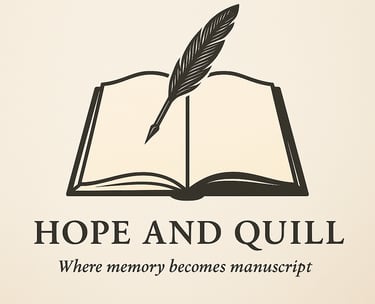A Spine Bearing My Name
To see your name beside idols is not arrival but a reminder. A reminder that the work is not preserved in ink but renewed in daily labour.
Sabeeh Rehman
9/17/20252 min read
The first time I saw my name pressed into a spine, I felt pulled in two directions. One was excitement: the boy who once searched library shelves for guidance had become the author of a book that would sit beside his idols. The other was fear: what if this moment made me complacent? What if the permanence of print became the tombstone of practice?
Fame does not need to be vast for its dangers to appear. Even the smallest recognition can intoxicate. To see your name bound on a spine is to be tempted into mistaking appearance for attainment, symbol for substance. You begin to believe that publication is an end. It is not. It is only what remains.
Even great thinkers like Nietzsche, who warned us that we are “condemned to be free,” is now reduced to slogans. This is the fate of all writing: to be stripped, diluted, misused or ignored. There is no immortality in ink, only the temporary relief that thought once mattered enough to be recorded.
And yet, this does not erase the act itself. It sharpens it. The futility of permanence makes the discipline of writing more urgent, not less. To create under the shadow of disappearance is to choose clarity over spectacle, even knowing the clarity will fade.
The history of authorship makes this clear. Marcus Aurelius wrote not for an audience but for himself, his Meditations nothing more than personal drills. Their survival was accident; their worth lay in the repetition that produced them. Nietzsche’s legacy rests less on publication than on the relentless force with which he tested his own ideas to exhaustion. Their permanence is found in their practice, not their printing.
So I ask myself, each time I catch sight of my name on a cover: will this image seduce me into nostalgia, into cynicism, into comfort and into complacency? Or will it serve as mirror, reminding me that practice is the only inheritance worth keeping? The applause is temporary, as is the scrutiny. What remains is the discipline that outlasts both.
The shelves are not sanctuaries. They are reminders. They do not absolve me of the work. They demand it.
Life is short, recognition shorter still. But the work will forever persist. To sit down each day, to carve clarity out of noise, to refuse the comfort of silence; that is the only permanence available. The page is not a monument. It is a grave marker that rots even as it is carved. But in its brief span, it can still carry weight.
I do not write for the future. I do not write for those to come after me. I do not write for recognition.
I write for one person, one time and one reason.
I write for now.
Hope And Quill
Where every word kindles a spark, and every story breathes new life.
JOIN the Literary revolution
© 2025. All rights reserved.


